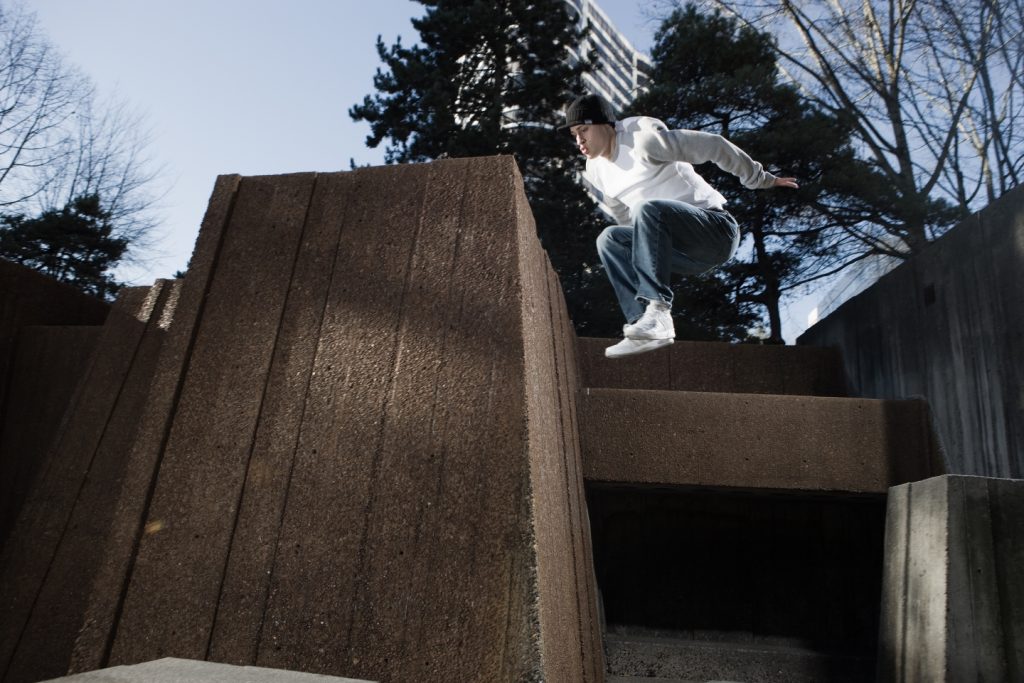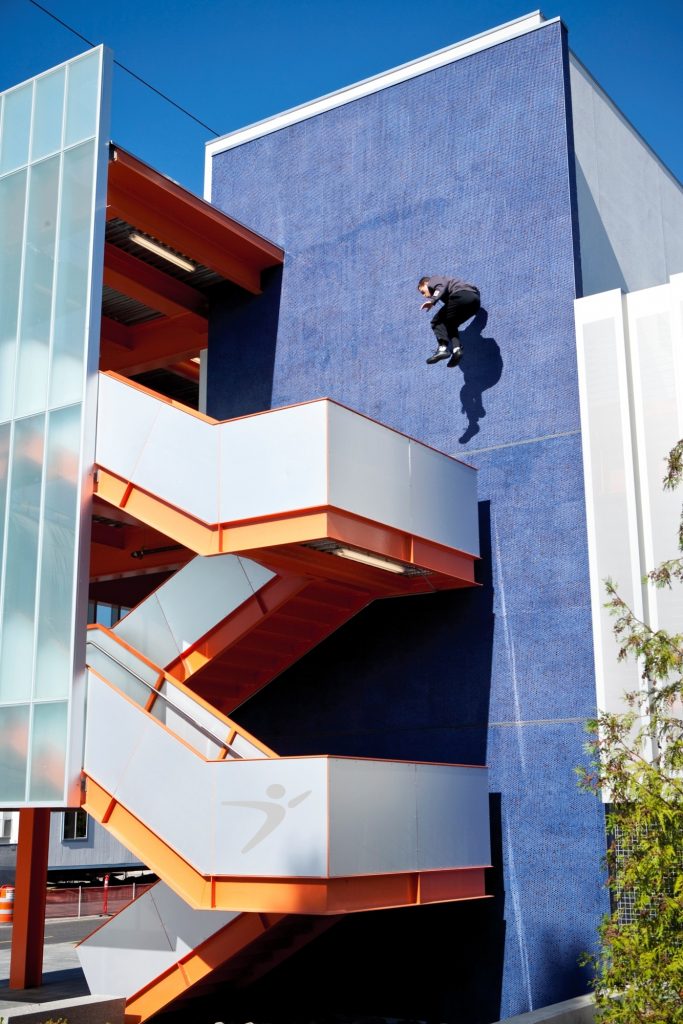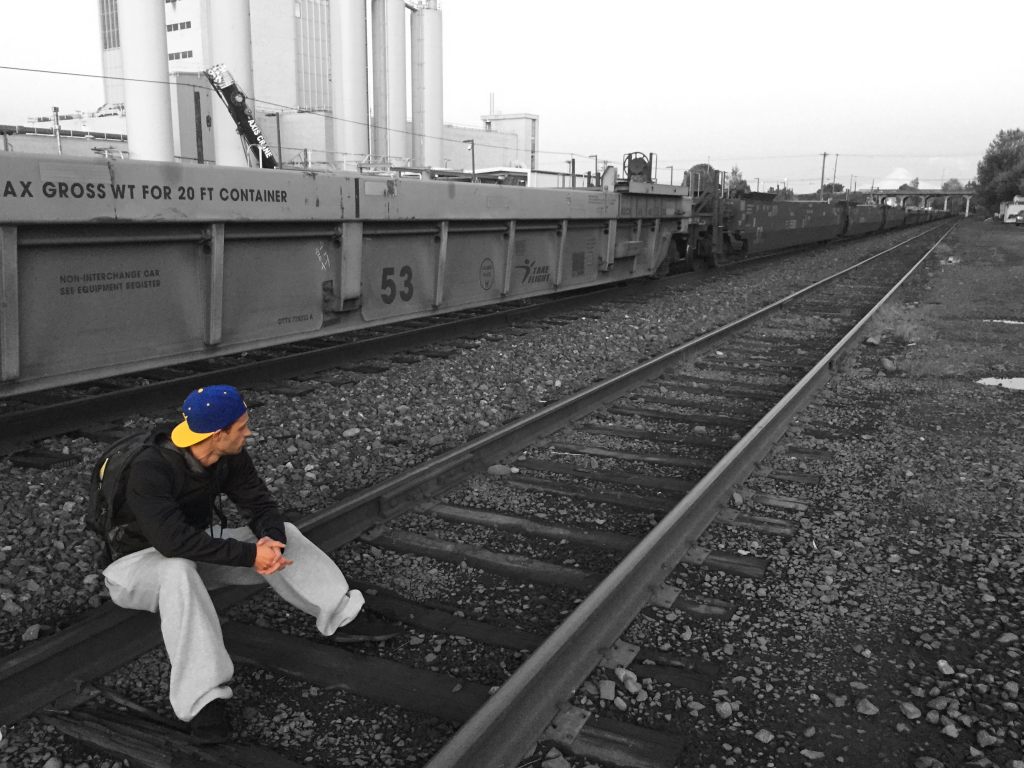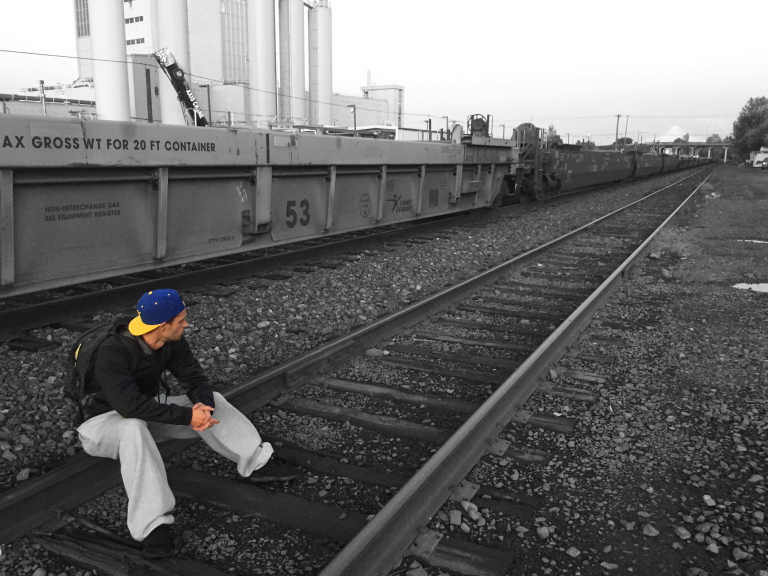I wrote this article in December 2012 for the Take Flight site. I forgot all about it until I came across it the other day. I decided to republish because the ideas still seem relevant. It’s just one perspective. I hope you find value in it.
What is a Traceur? That’s not a question I’ve consciously thought about very much over the past seven years (since I began my training). That’s because I always thought I knew the answer.
A Traceur is someone who practices Parkour.
Simple, right? Hmm, well not entirely. You see, I don’t believe in that definition anymore. Before I give you my new definition, I’ll explain some of the things that led me to it.
David Belle is a good place to start. He was my inspiration to start doing Parkour, and getting to know him as a close friend and learning the discipline directly from him has completely changed my view on Parkour and what it means to be a Traceur. There are two things I’d like to share from him for the sake of this writing.

First, David doesn’t train anymore. When he feels the need to move, he does. When he is inspired to jump, he goes. And when he is surrounded by good friends he will often venture out and test his détente. But for the most part David has finished his training. He was and still is one of the most capable athletes on the planet, but that’s not why he has stopped. He has stopped his training because he doesn’t feel there’s anything left to learn through it. We’ll come back to that.
Second, one of many things David has taught me about Parkour is that contrary to popular thinking today, the purpose of Parkour is not to keep doing it. In fact, it’s kind of the opposite. David has explained this to me on multiple occasions. It went something like this:
Do you see those people in martial arts who train the same punch again, and again, and again, year, after year, after year? Parkour is not meant to be like this. The point of Parkour is to know what you are capable of and to be able to do it. Once you have that you can move on. There is no reason to keep doing the same precision jump year, after year, after year.
These ideas and more had been circling in my mind for about a year. I internalized them and applied them, but I didn’t know how to succinctly explain them to others, so I let them sit. Then something happened about a week ago that put everything into place.

I was with my uncle and he gave me a lecture on quantum physics. The implications of quantum physics are mind boggling, which led my uncle – who is a physicist, mathematician, and computer engineer – to explain that physicists aren’t people who understand physics. Rather, he said, physicists are just people who are trying to understand physics. A light bulb turned on in my head, and he went on to explain that mathematicians also are not people that understand mathematics – hey are people trying to understand mathematics. The same is true about engineers he said – they don’t understand engineering but rather are trying to understand engineering.
What I realized is that the titles we give people rarely define what those people are. On the contrary, the titles we give people are usually much more accurate in explaining what those people are pursuing. Realizing this was when it all clicked, because as fate would have it this is also applicable to Parkour.
What is a Traceur? A Tracuer is NOT someone who practices Parkour. A Traceur is someone who is trying to understand Parkour.
I now see this definition as one of the core concepts to Parkour. It connects all the dots, draws the distinctions, and it also speaks to the depth and richness of Parkour’s philosophy and history. It gives fullness and direction to the training method both in its expanded approach and its focused pursuit. And maybe most important of all for today’s community, this new perspective also explains David.
How can the founder of Parkour and one of the great athletes of our time not feel the need to train anymore? Because the purpose of Parkour isn’t to keep on training. The purpose of Parkour is to lead us to an ability and an understanding. David has both, so he doesn’t feel the need to continue training the way he used to. And those of us that have taken up that search as he did, are now called Traceurs because of it.
So how does this apply to you? Well that’s up to you to decide. I’m really just sharing my view. But in the hopes of inspiring you to the next level whatever that may be, I will tell you how these ideas have affected me in case they help you in your journey.
Because of what David has taught me, I no longer look at Parkour or my training as something that centers around technique or ability. I now look Parkour and my training as a search. It is a search to understand myself; it’s a search to understand my abilities; it’s a search to understand my potential; and because I’m following in the footsteps of David and because I call myself a Traceur, my training is also a prominent search to understand Parkour.
I now take up my training with that perspective and heart, and I share this because based on everything David has taught me, I now believe that’s the way the discipline was meant to be practiced.
Is Parkour something you do or is it something you are trying to understand? Contemplate that for a bit, and I think it will change your perspective on Parkour and your definition of the word Traceur.

Since you’ve made it to the end of the article, why not leave a comment?! I’d love to hear your thoughts on the idea and hear your definition of the word Traceur 🙂

